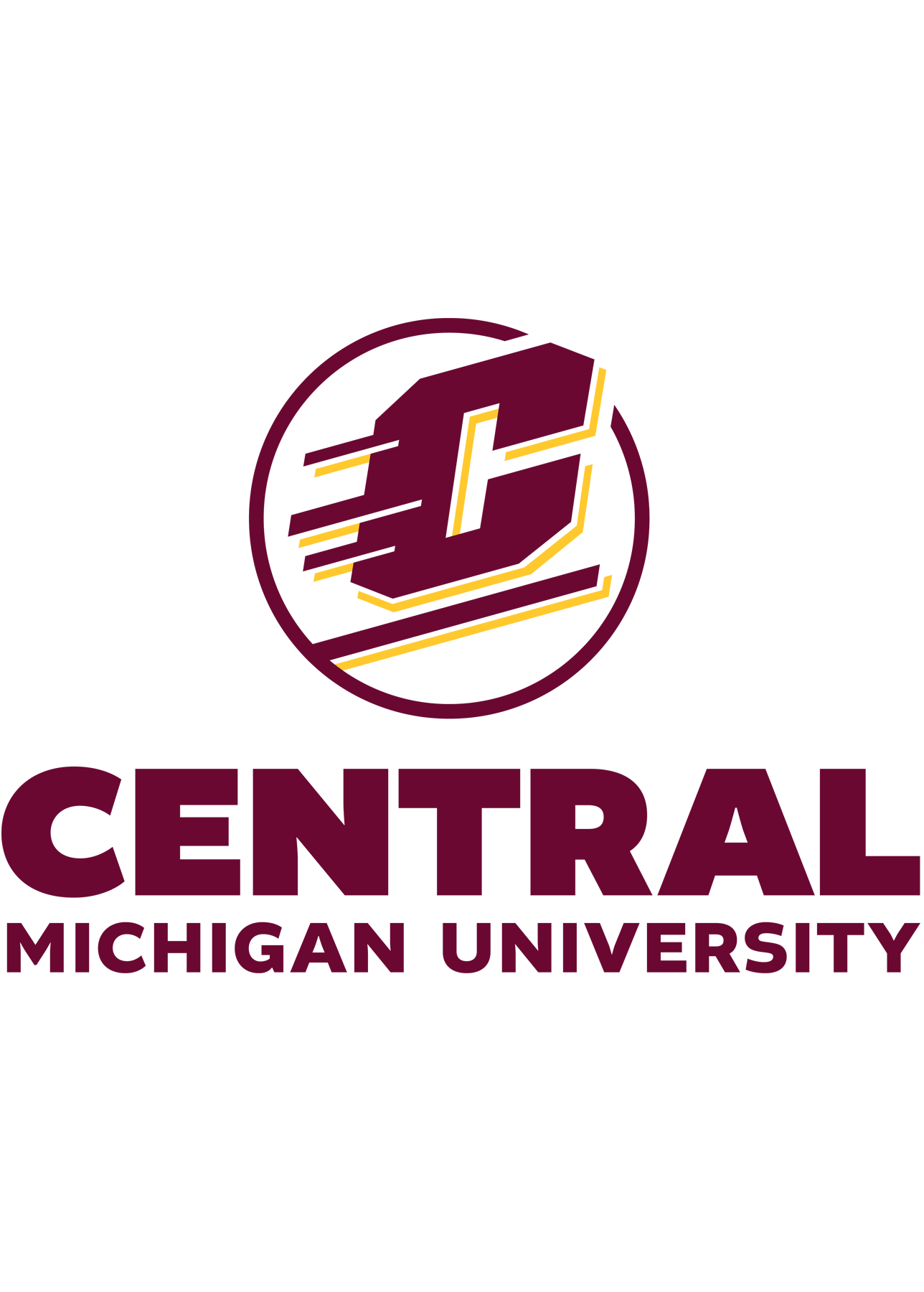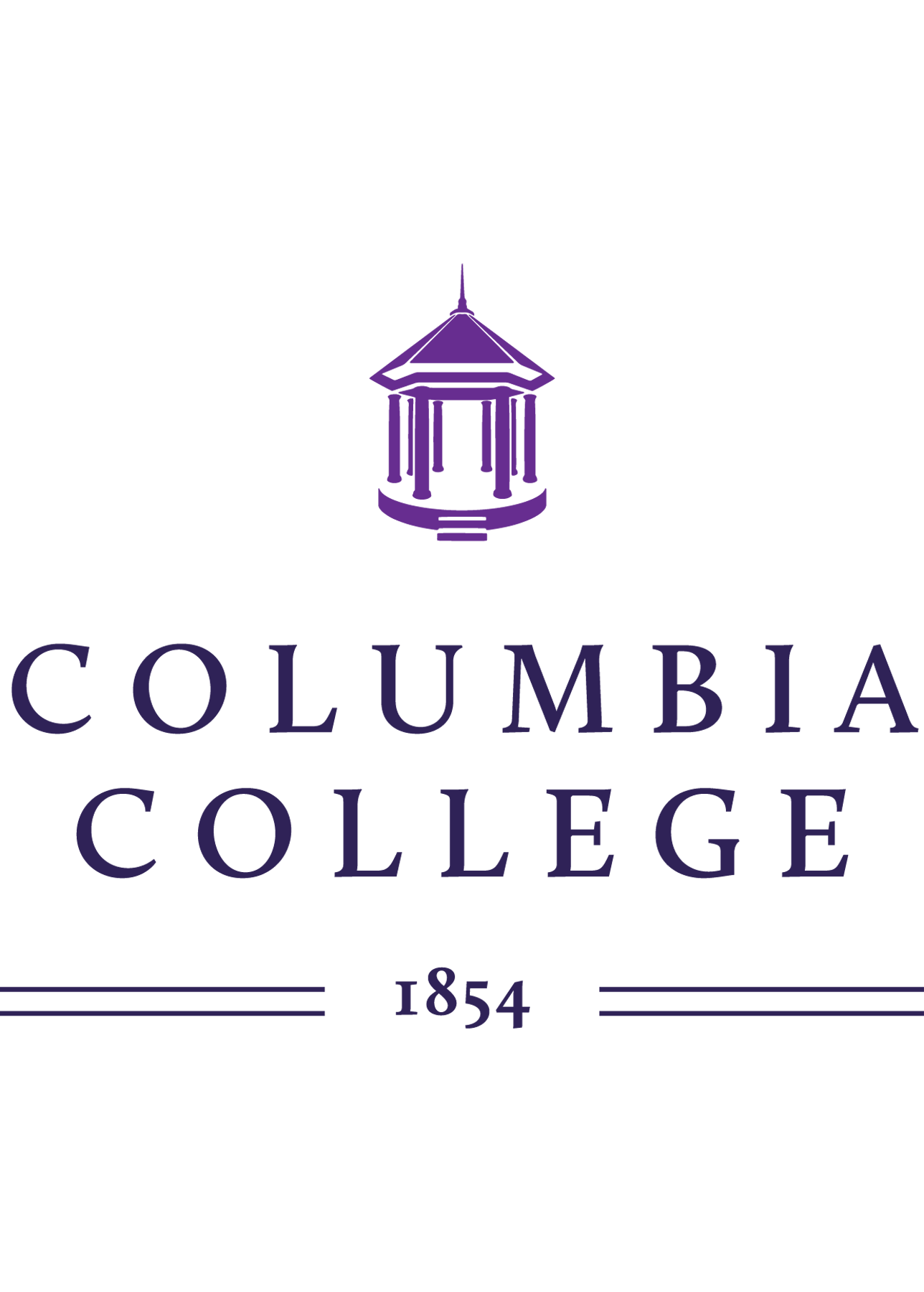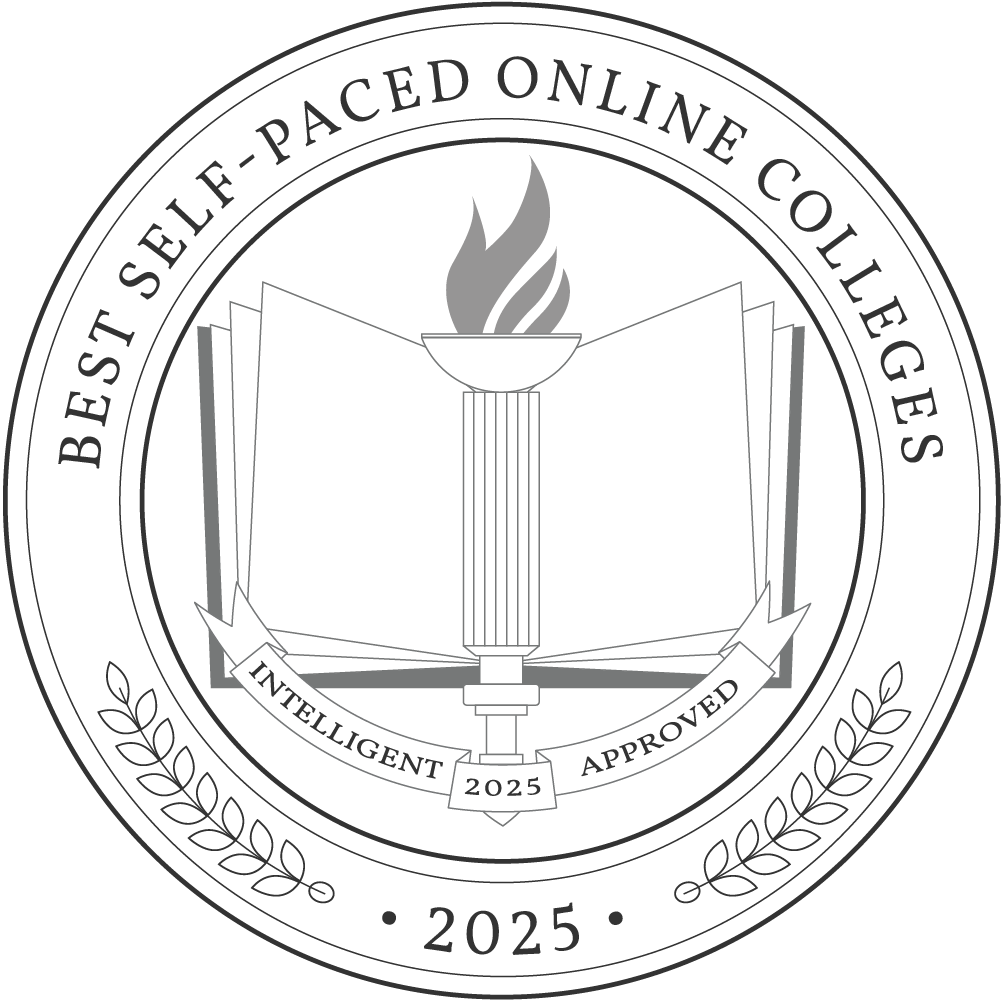Online education has become an increasingly popular option for college students due to its flexibility and convenience. Self-paced online education takes this even further by allowing you to learn at your own pace and on your own schedule. The availability of these online classes makes achieving a higher education more accessible than ever.
However, choosing the right self-paced online college can be daunting. To help you decide if this path is right for you, and help you choose the best school for your needs, here’s a closer look at how self-paced courses work and the best self-paced online colleges available.
Why Trust Us
The Intelligent.com Higher Education Team is dedicated to providing students with independent, equitable school and program rankings and well-researched resources. Our expert-driven articles cover topics related to online colleges and programs, paying for school, and career outlooks. We use data from the U.S. Department of Education’s College Scorecard, the National Center for Education Statistics, and other reputable educational and professional organizations. Our academic advisory team reviews content and verifies accuracy throughout the year for the most current information. Partnerships do not influence rankings or editorial decisions.
- Analyzed over 2,000 national, accredited, and nonprofit colleges and universities
- 800+ rankings pages are reviewed and updated yearly
- Content is informed by reputable sources, surveys, and interviews with academic advisors and other experts
- Over 100 data points are reviewed for accuracy and quality throughout the year, including sources
How we rank schools
Our list features the best online Self-Paced degree programs at top colleges nationwide. Each school featured is a nonprofit, accredited institution — either public or private — with a high standard of academic quality for post-secondary institutions.
We evaluated each school’s program on tuition costs, admission, retention and graduation rates, faculty, reputation, and the student resources provided for online students. We collected data from trusted sources like the National Center for Education Statistics, individual school and program websites, school admissions counselors, and other data sources. Then, we calculated the Intelligent Score on a scale of 0 to 100 based on the following criterion:
Academic Quality:
- Admission rate versus enrollment rate
- Retention rate of students who return after year one
- Accreditation status (regional and programmatic)
- Nonprofit status, both private and public institutions
Graduation Rate
- Overall graduation rate
- Total number of currently enrolled students, including diversity metrics
- Student-to-faculty ratio
Cost and ROI
- In-state and out-of-state per-credit tuition rates and fees
- Required credits to graduate
- Earning potential after graduation
- Availability of federal student loans, scholarships, and other financial aid options
Student Resources
- Available student services for online-only and hybrid programs
- On-campus amenities like tutoring centers and the number of libraries
Read more about our ranking methodology.
Best 37 Self-Paced Online Colleges
FiltersInstitution Type
Status
- Intelligent Score
- Alphabetically By University Name
- Acceptance Rate
- Enrollment
- In-state Graduate Tuition
- Out-of-state Graduate Tuition
- In-state Undergraduate Tuition
- Out-of-state Undergraduate Tuition

Central Michigan University
Intelligent Score: 99.43In-state: $12,296
Out-of-state: $22,881
In-state: $14,223
Out-of-state: $14,223
SAT: 1000-1210
ACT: 20-26
Certificate: $477Undergraduate: $520 - $525Graduate: $793 - $895
Online, On-Campus
Higher Learning Commission
Certificate: 12-18 Undergraduate: 120-124 Graduate: 30-66

Columbia College
Intelligent Score: 97.2In-state: $17,791
Out-of-state: $17,791
In-state: $10,671
Out-of-state: $10,671
SAT: 820-1050
ACT: 17-20
Undergraduate: $375 Graduate: $490
Online, On-Campus
Higher Learning Commission
Certificate: 16-18 Associate: 60-62 Undergraduate: 120 Graduate: 30-36

Albertus Magnus College
Intelligent Score: 96.29In-state: $34,410
Out-of-state: $34,410
In-state: $21,120
Out-of-state: $21,120
SAT: N/A
ACT: N/A
Undergraduate: $583 Graduate: $817 - $1,022
Online, On-Campus
New England Commission of Higher Education
Associate: 60 Undergraduate: 120 Graduate: 30-36

Liberty University
Intelligent Score: 95.58In-state: $14,791
Out-of-state: $14,791
In-state: $7,935
Out-of-state: $7,935
SAT: 1040-1250
ACT: 21-29
Undergraduate: $390 Graduate: $565 - $595
Online, On-Campus, Hybrid
Southern Association of Colleges and Schools Commission on Colleges
Certificate: 9-21 Associate: 60 Undergraduate: 120 Graduate: 30-60

Fort Hays State University
Intelligent Score: 95.57In-state: $4,140
Out-of-state: $14,580
In-state: $3,726
Out-of-state: $3,726
SAT: N/A
ACT: N/A
Undergraduate: $257 Graduate: $338 - $453
Online, On-Campus, Hybrid
Higher Learning Commission
Certificate: 8-15 Associate: 60 Undergraduate: 120 Graduate: 30-66

University of Wisconsin - Madison
Intelligent Score: 94.55In-state: $9,273
Out-of-state: $37,161
In-state: $10,728
Out-of-state: $10,728
SAT: 1260-1460
ACT: 27-32
Certificate: $800 - $1,600Undergraduate: $452 - $675Graduate: $800 - $1,600
Online, On-Campus
Higher Learning Commission
Certificate: 9-12 Undergraduate: 120-124 Graduate: 30-58

Indiana Wesleyan University
Intelligent Score: 93.26In-state: $28,184
Out-of-state: $28,184
In-state: $13,512
Out-of-state: $13,512
SAT: 1010-1200
ACT: 21-27
Certificate: $395 - $689Associate: $299 - $315Undergraduate: $305 - $455Graduate: $455 - $689
Online, Hybrid
Higher Learning Commission
Certificate: 12-27 Associate: 60 Undergraduate: 120 Graduate: 30-70

University of Florida
Intelligent Score: 91.61In-state: $4,477
Out-of-state: $25,694
In-state: $10,770
Out-of-state: $10,770
SAT: 1290-1460
ACT: 29-33
Undergraduate Resident: $112 Non-Resisident: $500 Graduate: $449 - $734
Online, On-Campus
Southern Association of Colleges and Schools Commission on Colleges
Certificate: 12-18 Undergraduate: 120 Graduate: 30-60

University of Illinois at Urbana - Champaign
Intelligent Score: 90.25In-state: $14,317
Out-of-state: $33,824
In-state: $15,016
Out-of-state: $15,016
SAT: 1200-1460
ACT: 27-33
Certificate: $298 - $1,160Undergraduate: $424 - $520Graduate: $347 - $1,201
Online, On-Campus, Hybrid
Higher Learning Commission
Certificate: 8-33 Undergraduate: 120 Graduate: 32-72

The University of Texas Rio Grande Valley
Intelligent Score: 89.97In-state: $11,448
Out-of-state: $40,032
In-state: $12,028
Out-of-state: $12,028
SAT: 1210-1470
ACT: 26-33
Certificate: $444 - $472 Undergraduate Resident: $403 - $416
Non-Resident: $813 - $826 Graduate: $444 - $472
Online, On-Campus
Southern Association of Colleges and Schools Commission on Colleges
Certificate: 9-18 Undergraduate: 120 Graduate: 30-66

Azusa Pacific University
Intelligent Score: 89.94In-state: $40,830
Out-of-state: $40,830
In-state: $16,571
Out-of-state: $16,571
SAT: N/A
ACT: N/A
Certificate: $596Undergraduate: $460 - $527Graduate: $684 - $1,230
Online, On-Campus, Hybrid
Western Association of Schools and Colleges Senior College and University Commission
Certificate: 6-18 Undergraduate: 120 Graduate: 30-73

Mercy University
Intelligent Score: 88.94In-state: $40,712
Out-of-state: $40,712
In-state: $47,865
Out-of-state: $47,865
SAT: 1020-1230
ACT: 23-27
Undergraduate: $924 Graduate: $1,040 - $1,196
Online, On-Campus, Hybrid
Middle States Commission on Higher Education
Certificate: 12-21 Undergraduate: 120-141 Graduate: 30-48

UMass Global
Intelligent Score: 88.6In-state: $63,560
Out-of-state: $63,560
In-state: $55,460
Out-of-state: $55,460
SAT: Not Required
ACT: Not Required
Certificate: $300Associate: $500Undergraduate: $500Graduate: $730
Online, On-Campus
Western Association of Schools and Colleges Senior College and University Commission
Certificate: 21 Associate: 60 Undergraduate: 120 Graduate: 30-69

UA Little Rock
Intelligent Score: 88.34In-state: $7,568
Out-of-state: $24,056
In-state: $7,752
Out-of-state: $7,752
SAT: 1090-1280
ACT: 23-29
Certificate: $292 - $396Associate: $292Undergraduate: $292Graduate: $396
Online, On-Campus
Higher Learning Commission
Certificate: 12-21 Associate: 60 Undergraduate: 120 Graduate: 30-60

Gwynedd Mercy University
Intelligent Score: 86.46In-state: $36,027
Out-of-state: $36,027
In-state: $13,967
Out-of-state: $13,967
SAT: 950-1140
ACT: 18-21
Undergraduate: $700 - $840 Graduate: $750 - $1,130
Online, Hybrid
Middle States Commission on Higher Education
Certificate: 12 Undergraduate: 67 Graduate: 30-60

Lourdes University
Intelligent Score: 85.36In-state: $23,600
Out-of-state: $23,600
In-state: $13,561
Out-of-state: $13,561
SAT: 850-1080
ACT: 17-23
Undergraduate: $890 Graduate: $700
Online, On-Campus
Higher Learning Commission
Undergraduate: 120 Graduate: 66

University of North Dakota
Intelligent Score: 85.32In-state: $8,540
Out-of-state: $12,810
In-state: $11,060
Out-of-state: $11,060
SAT: 1000-1230
ACT: 20-27
Undergraduate: $385 Graduate: $498
Online, On-Campus
Higher Learning Commission
Certificate: 9-16 Undergraduate: 120 Graduate: 30-90

Northern Kentucky University
Intelligent Score: 85.26In-state: $9,912
Out-of-state: $19,872
In-state: $11,034
Out-of-state: $11,034
SAT: 960-1190
ACT: 20-26
Certificate: $412 - $600Undergraduate: $315 - $320Graduate: $412 - $673
Online, On-Campus
Southern Association of Colleges and Schools Commission on Colleges
Certificate: 9-33 Undergraduate: 120 Graduate: 30-60
How Do Self-Paced Online Courses Work?
Self-paced online courses are a form of asynchronous learning, meaning there are no set class times. Instead, students can access course materials, including video lectures, articles and reading material, interactive quizzes and assignments, and discussion forums, which they can work through at their own pace.
Typically, online courses will use a platform like Blackboard as a central hub for all things related to the course, including lectures, assignments, quizzes, and tests. This system allows students to track their progress, communicate with instructors and peers, and submit assignments.
With most self-paced courses, students will still have access to either a professor of the course or some sort of student support center to receive help with certain questions or concepts.
While some self-paced online courses have set deadlines, others do not, allowing students to work through the course materials as quickly or slowly as they like, as long as they finish everything by the end of the semester.
Though self-paced courses offer incredible flexibility compared to instructor-led courses, they do require students to be self-motivated and disciplined. Without the structure of a traditional classroom, it can be challenging to stay on track and complete coursework on time.
Are Self-Paced Courses Right For You?
Self-paced courses can be an excellent choice for students with work or family commitments, making time for traditional on-campus classes difficult. They’re also great for students who prefer to learn at their own pace or have unique learning styles that make it difficult for them to excel in traditional learning environments. Self-paced online courses are a good fit for anyone who may be traveling as well, as you can complete assignments anywhere in the world with a strong internet connection and the right computer software.
On the other hand, self-paced courses are not necessarily the best choice for students who struggle with time management or need a traditional classroom structure. These courses require students to be proactive in seeking help and support when needed, as there is no instructor to provide guidance.
While self-paced programs can be very appealing, it’s important to carefully consider your learning style and preferences to decide if this type of program will set you up for success.
If you’re unsure whether self-paced courses are the right choice for you, you can start slowly by enrolling part-time in just one or two classes for a semester. This will help you determine if self-paced learning suits your learning preferences without having to commit to a full-time learning schedule. Additionally, you can connect with an admissions counselor or alumni member to ask questions before committing to a program.
Pros and cons of self-paced online colleges
Pros
-
Flexibility
Self-paced programs allow students to complete lessons and assignments whenever it is most convenient for them and at a pace that suits them best.
-
Accessibility
Allow students to earn a degree without the rigid time and location requirements of traditional in-person programs, creating broader access to higher education.
-
Caters to non-traditional learners
Not all students learn at the same pace. Self-paced programs are ideal for students who need extra time to process information or can progress through material faster without being held back by others.
Cons
-
Require self-discipline and motivation
Without the consistent support and accountability provided by instructors, classmates, and traditional class structure, students must rely on themselves to stay on schedule and complete their courses on time.
-
Lack of real-time interaction
Because students in self-paced programs progress through programs individually, there’s less opportunity for them to interact with each other in real time, although some programs may utilize asynchronous methods, like discussion boards, to help students connect.
How To Succeed in a Self-Paced Online College Program
Staying motivated and on track can be challenging even for students well-suited for self-paced courses.
This is particularly true for students with work or family obligations that make it challenging to keep up with coursework and meet deadlines. Effective time management is an important aspect of succeeding in a self-paced program, especially if the program has specific deadlines for assignments, projects, or course completion.
Here are some tips to help you succeed in a self-paced online college program.
Set up a dedicated study area in your home
Creating a dedicated study area in your home can help you avoid distractions and stay focused. Make sure your study area is free from distractions like televisions or loud music, and ensure you have a comfortable chair and desk. A dedicated study space can also help signal to your brain that it is time to focus and learn.
Separating your study room from your bedroom will make maintaining a distraction-free study environment easier. If your living situation doesn’t allow for this, you can try arranging your furniture in such a way that there is a clear divide between your study and living spaces.
Manage your time
Effective time management is crucial when taking self-paced courses. Create a study schedule and stick to it, making sure to set aside dedicated time each day for studying and completing coursework. Utilize time management tools such as calendars, to-do lists, and reminders to stay on top of your assignments and deadlines.
Even if you don’t have a busy schedule outside of school, maintaining a consistent routine will help you stay on top of your coursework and complete assignments promptly so that you can avoid the stress that comes with procrastinating.
Study more effectively
Effective study habits are crucial to success in self-paced online courses. Since you’ll mostly be responsible for your own learning and progression, learning what works for you and what doesn’t will help set you up for success.
There are many techniques you can use to study more effectively, such as the Leitner System, which is a popular method for memorizing information, or the Feynman Technique, which can help you understand complex concepts by simplifying them.
Other techniques include:
- Creating flashcards.
- Creating outlines of course readings.
- Summarizing course materials in your own words.
- Using mnemonics to remember key information.
You don’t have to implement all of these methods, of course, but finding a few study techniques that appeal to your learning preferences will make you much more likely to succeed in a self-paced program.
Frequently Asked Questions About Self-Paced Online Colleges
How long does it take to complete a self-paced online college program?
As the name implies, the completion time for a self-paced online college program largely depends on the pace at which the student progresses through the program. However, most schools will set a maximum time to complete classes and the overall program, to help keep students motivated and continuing their progress.
The time limits for self-paced courses and programs will depend on the school. Students should review the maximum time limits with an academic advisor before enrolling to ensure they understand and can meet expectations.
How important is accreditation when choosing a self-paced online college?
Accreditation is very important when choosing any college, including a self-paced online school. Institutional accreditation from a recognized accrediting agency confirms that the school meets high standards of quality in education. Programmatic accreditation ensures that individual programs meet the requirements and standards of the field or industry in which students earn their degrees.
Students who attend a non-accredited school may not be eligible for federal financial aid. It may also impact a student’s ability to transfer credits to another school or pursue further education at the graduate level. Employers are also less likely to accept degrees from unaccredited schools.
Colleges usually include their accreditation status on their website, but you can also independently verify a school’s accreditation status through the Council for Higher Education Accreditation (CHEA) or the Department of Education’s Database of Accredited Postsecondary Institutions and Programs (DAPIP).
How do I choose the self-paced online college that's right for me?
Start by clarifying your educational and career goals. If you haven’t yet chosen an area of study, completing a career or personality assessment can help you determine your strengths and interests and what type of program might be best for you. Knowing what career or job you want to prepare for helps you determine whether a degree or certificate is best for you.
Once you have some parameters established, begin researching programs by visiting their website, speaking to admissions counselors and program representatives, participating in online information sessions and open houses, and following them on social media. Gather as much information as you can about curriculum, faculty, internships, costs and available financial aid, student support services, and more, as this will help you compare and find the program that best fits your needs..
Review the school’s application requirements and eligibility criteria to ensure that you meet the basic standards for admission. Speak to a financial aid counselor to get specific information about the cost of the program and what types of financial aid are available, so you can determine if the school fits into your budget.
Learn More About Online Colleges and Programs
- Are Online Degrees The Same As Traditional Degrees?
- Do Online Degrees Say Online On The Diploma?
- Do Employers Accept Online Degrees?
- Do Any Ivy League Schools Have Online Degrees?
- Is Online College Cheaper?
- Does Out-of-State Tuition Apply To Online Degrees?
- Can I Finish My Bachelor’s Degree Online?
- How Much Does an Online Bachelor’s Degree Cost?
- Can I Get a Master’s Degree Online?
- How Much Does an Online Master’s Degree Cost?
- Can You Get a PhD Online?
- Are Online PhD Programs Legitimate?


